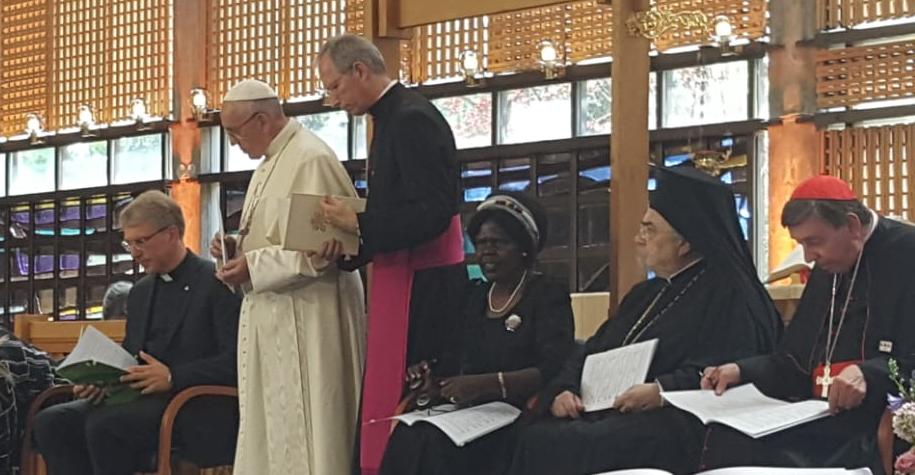Police are allegedly ignoring attacks on Christians committed by hard-line Hindu groups in southern India.

Christians protest in Coimbatore on April 17 as part of a state-wide protest demanding government action to end violence against Christians in Tamil Nadu. (Pic and article source: UCAN India)
Hyderabad
Thousands of Christians took to the streets during protests across the southern Indian state of Tamil Nadu on April 17 to demand government action to stop what they call increasing harassment and violence against Christians.
Some 20,000 Christians from various denominations filled roads in at least 16 cities and towns shouting slogans against government inaction to check anti-Christian activities allegedly carried out by upper-caste Hindu groups.
The Synod of Pentecostal Churches in Tamil Nadu organized the protest as Christians have been subjected to at least 15 cases of violence in the first three months of this year.
Incidents include the mysterious death of a pastor who was found dead a week after he complained to police about harassment from hard-line Hindus.
“We are facing lot of persecution in our state,” synod general secretary K.B. Edison told ucanews.com.
“The peaceful protest was to get the attention of the state and federal government about the serious need for security and protection of the Christian minority.
“In the past four years we have faced many challenges. Our churches are being attacked, they are being burned, pastors’ lives are under threat. We are not able to bear these atrocities. They are even burning Bibles.
“We have approached the state government several times but disappointingly no action has been taken.”
Nehemiah Christie, the synod’s director of legislation and regulations, told ucanews.com that both Protestant and Catholic denominations joined the protest.
He said administrative bodies — including the police — have been apathetic to act against violence committed by Hindu groups because of the strong religious and caste biases in the state.
Catholic Father Gregory Rajan of the Infant Jesus Cathedral of Salem supported the protest. “Hindu extremist forces are behind the attacks,” said Father Rajan.
The priest said a lack of strong political leadership in the state remains a major issue. Tamil Nadu is not ruled by the pro-Hindu Bharatiya Janata Party (BJP). But the local political party — named All India Anna Dravida Munnetra Kazhagam — which runs the government “is depending on the BJP for policy and advice on the affairs of the state. Naturally, the local Hindu forces feel emboldened to attack Christians,” he said.
Published data shows violence against Christians has increased across India since the BJP came to power in New Delhi in 2014 in a landslide victory. Hindu groups took the BJP’s victory as a mandate to step up violence against religious minorities in their push to establish a nation ruled by a Hindu upper-caste hegemony. Attacks have been increasing in India, said Persecution Relief, an ecumenical forum that records Christian persecution in India. There were 736 reported attacks against Christians in 2017, up from 348 in 2016, the forum said.
Local Christian leaders say most of their new members come from the lower strata of the caste-ridden Tamil society. Higher-caste people oppose any Christian gatherings because they believe they pollute their area. Higher-caste people also believe those in economically and socially poor castes can be attacked and harassed with impunity, Christie said.
He said their protest program was supported by some mainstream political parties such as the Communist Party of India and some Buddhist and Muslim leaders in the state.
“It is an assurance that they will stand by us to ensure that the constitutional rights of minorities be protected,” Christie said. “Our demands are very simple. Growing violence against Christians and police complicity are matters of deep concern. We want the government to act to end all forms of fascist aggression against Christians and to uphold the rule of law.”
Christians are the largest minority in the state, forming 4.5 million or some 6 percent of its 72 million people. A majority of them — plus the state’s 4.2 million Muslims — come from castes considered low in the social hierarchy.
Source: Union of Catholic Asian News (UCAN) India (india.ucanews.com)















